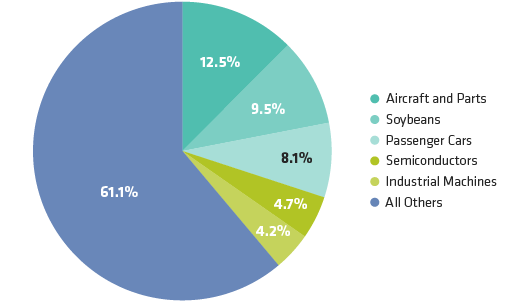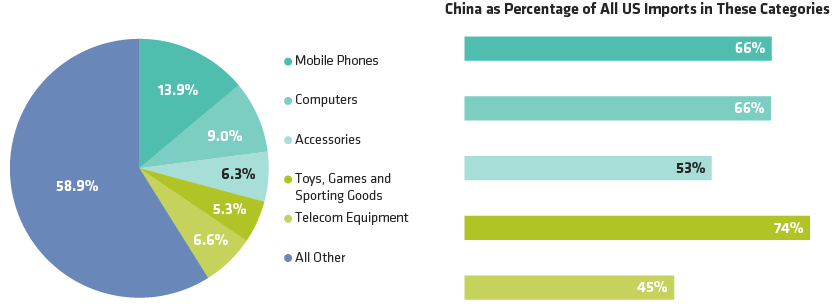-
The views expressed herein do not constitute research, investment advice or trade recommendations and do not necessarily represent the views of all AB portfolio-management teams.
Can Investors Make Money in a US - China Trade War?
Mar 22, 2018
4 min read
What Does China Import from the US?

As of December 31, 2017
Source: US Census Bureau and AllianceBernstein (AB)
What Does US Import from the China?

As of December 31, 2017
Source: US Census Bureau and AllianceBernstein (AB)
-
Identify the most vulnerable products, industries and companies
-
Find companies that could actually benefit from trade war fallout
-
Look for specific targeted areas in which one country may have leverage over another
About the Authors